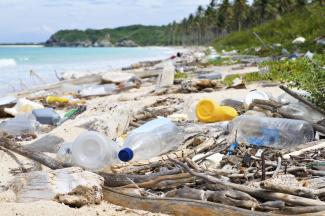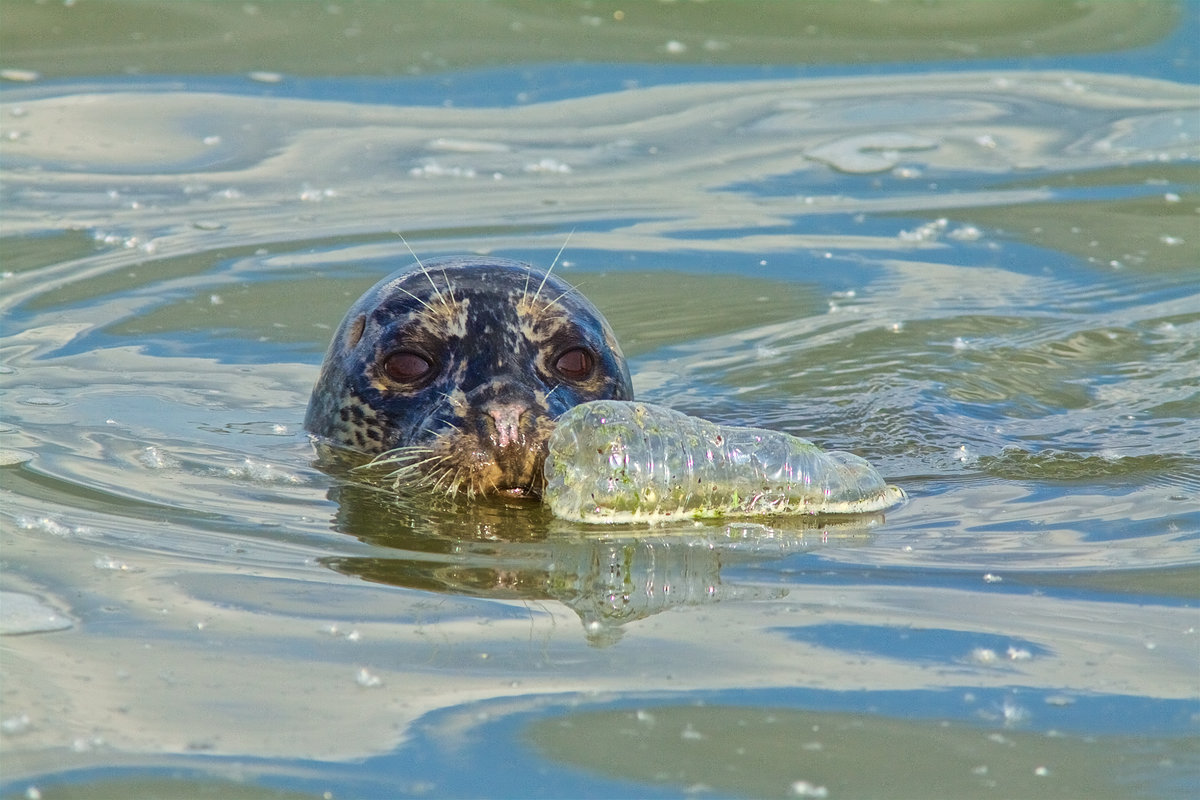
Do the preparation task first. Then read the text and do the exercises.
Preparation

A Plastic Ocean
A Plastic Ocean is a film to make you think. Think, and then act. We need to take action on our dependence on plastic. We've been producing plastic in huge quantities since the 1940s. Drink bottles, shopping bags, toiletries and even clothes are made with plastic. 1) _____. What happens to all the rest? This is the question the film A Plastic Ocean answers. It is a documentary that looks at the impact that plastic waste has on the environment. Spoiler alert: the impact is devastating.
The film begins as a journey to film the largest animal on the planet, the blue whale. But during the journey the filmmakers (journalist Craig Leeson and environmental activist Tanya Streeter) make the shocking discovery of a huge, thick layer of plastic floating in the middle of the Indian Ocean. 2) _____. In total, they visited 20 locations around the world during the four years it took them to make the film. The documentary premiered in 2016, and is now on streaming services such as Netflix.
It's very clear that a lot of research went into the film. There are beautiful shots of the seas and marine life. 3) _____. We see how marine species are being killed by all the plastic we are dumping in the ocean. The message about our use of plastic is painfully obvious.
4) _____. In the second half, the filmmakers look at what we can do to reverse the tide of plastic flowing around the world. They present short-term and long-term solutions. These include avoiding plastic containers and 'single-use' plastic products as much as possible. Reuse your plastic bags and recycle as much as you can. The filmmakers also stress the need for governments to work more on recycling programmes, and look at how technology is developing that can convert plastic into fuel.
We make a staggering amount of plastic. In terms of plastic bags alone, we use five hundred billion worldwide annually. Over 300 million tons of plastic are produced every year, and at least 8 million of those are dumped into the oceans. 5) _____. Once you've seen A Plastic Ocean, you'll realise the time is now and we all have a role to play.




Hi Vanessa Rodrìguez,
Thanks for letting us know. I've just checked the page and it seems fine, so it may have been a temporary error. Can you see the reading text now?
If not: which picture can you see - is it (1) the picture of rubbish on a beach, or (2) the picture of a seal with a plastic bottle? Do you find the same problem with other pages (e.g. this one)?
If it is still not working, one solution is to try opening the page with a different web browser and see if it works. I hope it works now but please let us know again if not, and I will investigate further. Thanks :)
Jonathan
The LearnEnglish Team
Hello KarenAvdalyan,
Jonathan replied to Vanessa Rodrìguez's post with several questions. You can see his answer below. If you're still having problems please reply to his post with the information he asked for and we'll see if we can help.
Most often, these kinds of problems are either compatibility problems where a particular device does not show the page correctly or local connection issues related to local internet regulations. You could try accessing the page via a different type of device (a laptop, for example, if you are having problems with a mobile device) to see if that helps.
Peter
The LearnEnglish Team
Hello Andrea Valencia,
I'm sorry to hear you're having some problems. I've checked the page and everything is functioning correctly on both Windows and Mac, so I can only gues that there is a compatibility issue. Try using a different browser or a different device, if you can - this may solve the issue. Sometimes there are compatibility problems with mobile devices, so if you have a laptop or desktop computer you might try this.
Peter
The LearnEnglish Team
Hi Andrea,
You can read the article by downloading worksheet which stands below discussion section.
Regards.